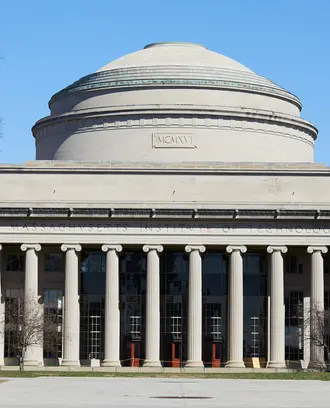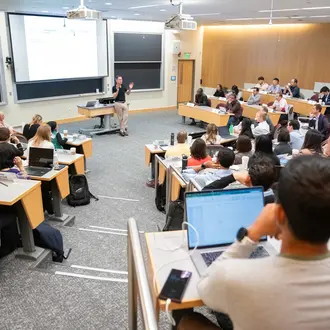Felipe Seligman, EMBA '18
As a reporter at a leading Brazilian newspaper, I saw first-hand the uncertainty of the regulatory and legal systems. Without transparency or predictability, people working in these institutions face significant challenges. At the same time, I saw disruption in the newspaper industry, as the advertising model changed, and people sought digital sources for information. That’s when I decided to co-found JOTA, a digital news company that helps people better understand the judicial system in Brazil.
Our first market was lawyers, but we soon realized that people working in big companies and the financial system also need this information. Many professionals follow legal issues that impact their companies’ operations in the country. Pivoting to a broader audience, we built digital newsletters filled with insights and resources to increase transparency and predictability. But it wasn’t enough. Something was missing.
The missing ingredient was data science. Journalism can help people predict the future, but it’s still a lot of guessing. We wanted to bring more data and technological processes to the company, but journalists don’t usually have that kind of data analytics background. This is when I decided to apply to the MIT EMBA. In addition to learning better management skills, I needed to be able to analyze data to grow my company.
At MIT, I learned how to combine data science with journalism. After taking Data, Models and Decisions and Analytics Edge, I jokingly told my classmates that I worked in the “journalytics” industry.
But that’s easier said than done. How do you create a data science operation that works well with a newsroom? These are two different animals that exist separately, and I wanted to merge them together to create a powerful union.
To do this, I applied several lessons from those classes:
You don’t need perfection
I learned that we don’t need to be 100 percent accurate or perfect. It’s better to build a model that is an improvement over simply guessing. If we could do that, then that would be a huge contribution.
Aim for simple over complex
We also don’t need to build complex models. It’s better to have simple ways of explaining things with data. That is better than having an algorithm that no one understands. In journalism, it’s critical to be able to explain the models to have credibility.
You don’t need to be the expert
I need to understand the basics of data science to build an organization with data science at its core. However, I don’t need to have a PhD in data science. It’s more important to hire good people to be the scientists and let them do their job.
Pick and choose your data
Data is very interesting, but not all of it is necessary. The biggest challenge with data science is understanding what data to use because you don’t need to use everything. Knowing what data is important to the model and what to ignore is key. Building the model is only 10 percent of the work. The rest is understanding if the data is good and can be applied.
Since we launched JOTA with four people, we’ve grown with offices in Brasília, São Paulo, Rio de Janeiro and Washington, D.C. Guided by the public interest, a commitment to ethics and impartiality, JOTA has already become a useful, relevant, influential, and trustworthy source of information about power in Brazil.
In 2019, , we received an award for the best digital news startup by the World Association of Newspapers and News Publishers. In other categories, companies like the New York Times, The Guardian, and the BBC have received the same award.
As we want to make a bigger impact, we’ll continue to work to increase the predictability and transparency of institutions in Brazil. So far, it’s clear that we’re on the right path with “journalytics.”



